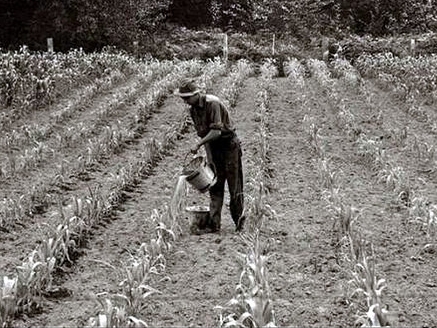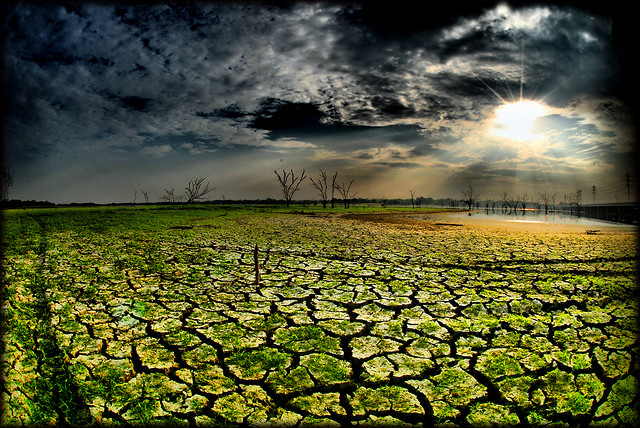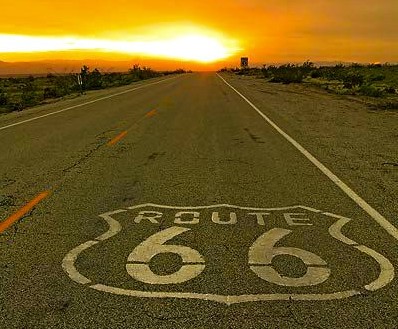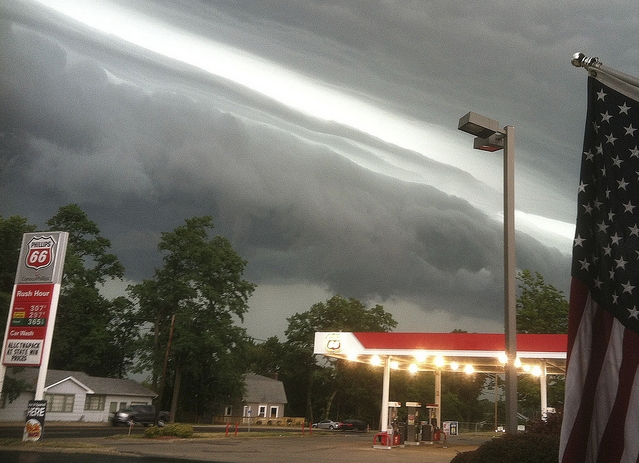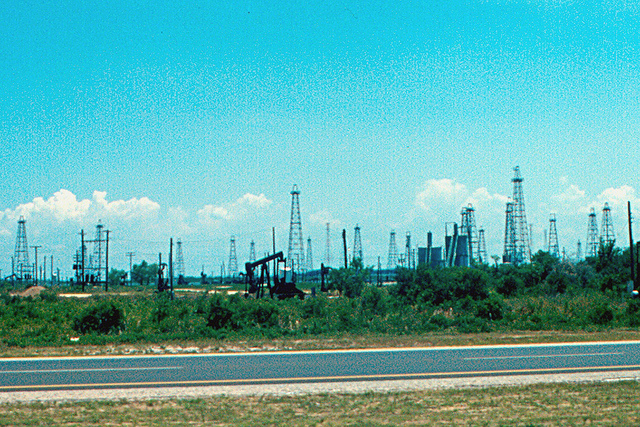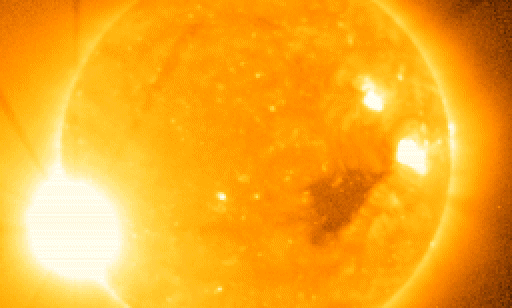Podcast: Play in new window | Download
Subscribe: RSS
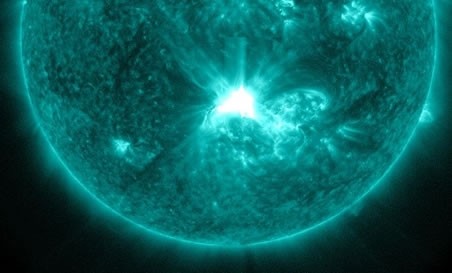
A solar flare erupting from the sun yesterday, along with a CME that will miss earth. Watch that space.
Newt Gingrich is like the sun in this respect: if an entity belches heat and light and energy on all frequencies in all directions all the time, every once in a while it’s going to hit something. At 1:00 am tomorrow, Saturday July 14, a coronal mass ejection from the sun capable of shutting down life on earth as we know it will miss our home planet, not by much. Coincidentally, the Washington Post this morning contains an essay by Mr. Gingrich on the danger of such an event, a rare direct hit by a man who has frequent cerebral mass ejections. Continue reading
